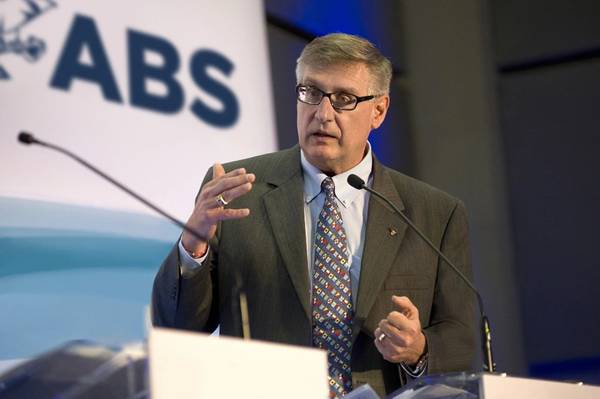
“Safety is not merely a box to check but a dynamic force shaping the trajectory of our industry. It acts as both a boundary condition, defining the limits within which we operate, and a catalyst for change, propelling us toward innovative solutions and practices that align with our commitment to a greener future.”
That was the message to shipping industry leaders at COP28 from ABS Chairman and CEO Christopher J. Wiernicki.
Speaking at the International Chamber of Shipping Shaping the Future of Shipping Summit, he emphasized the pivotal role of safety in delivering a more sustainable industry.
“The transition to new fuels and technologies must be undertaken with safety as a non-negotiable boundary condition. This means ensuring that alternative fuels and propulsion systems are inherently safe, that safety protocols are adapted accordingly, and that seafarers are adequately trained to handle these advancements. Moreover, safety serves as a catalyst for innovation. The pursuit of safer operations often leads to the development of new technologies and processes, which can simultaneously contribute to decarbonization goals. For instance, advancements in energy efficiency, autonomous shipping, and route optimization can not only reduce emissions but also enhance safety by minimizing the risk of accidents.”
Wiernicki said the industry is on course to move to a multi-dimensional world, where fuels, technology and data must unite to provide the hybrid solutions required to achieve net zero.
“The future of safe and decarbonized shipping lies in a more holistic, multidimensional approach. Instead of relying on implicit assumptions and prescriptive rules, the industry must adopt a more explicit and systems-oriented approach to safety.
“As a result, we anticipate a shift toward goal-based approaches over prescriptive measures, a change amplified by real-time data enabled by sensors and autonomy. This future will be more people-driven, emphasizing collaboration and shared responsibility. This is why ISM will be the safety framework of the future. It also underscores why the IMO must now focus on modernizing SOLAS, so it meets the needs of a transformed industry. ”



